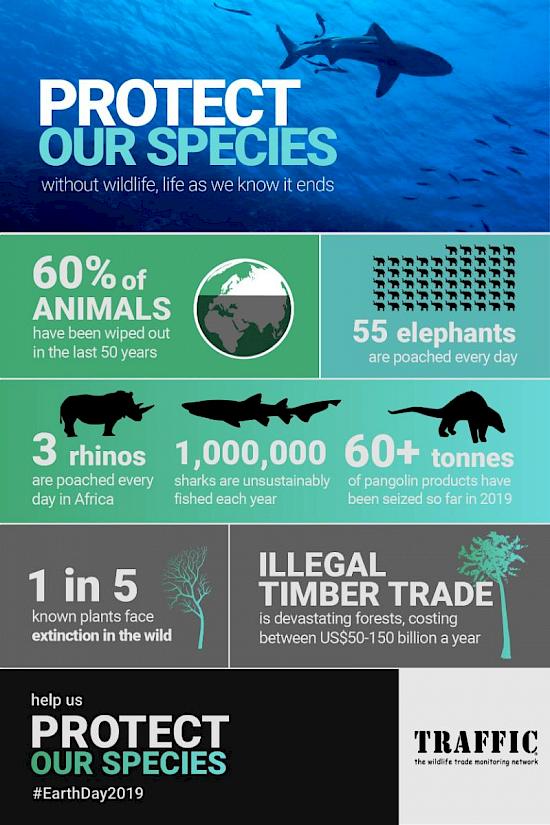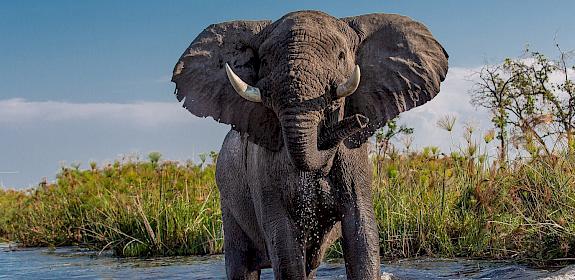“Protect our Species” on #EarthDay2019
Cambridge, UK, 22nd April, Earth Day 2019—this year’s Earth Day theme is Protect our species, a topic that should concern every one of us as the world lurches towards its sixth mass extinction event, with the effects of biodiversity loss plain to see.
 In nature, nothing lives in isolation—the species found in tropical rainforests, on the ocean floor, mountain landscapes, or savannah woodlands all live in complex, interconnected ecosystems that evolved over millions of years.
In nature, nothing lives in isolation—the species found in tropical rainforests, on the ocean floor, mountain landscapes, or savannah woodlands all live in complex, interconnected ecosystems that evolved over millions of years.
But whatever the habitat, the loss of even one species can have devastating consequences that cascade beyond individual populations, eventually knocking entire ecosystems off balance.
Wildlife trade is at the heart of human development: it provides sustenance to millions around the world and contributes essential revenue to the economies of developing and developed nations alike. It is an essential element of our existence.
But poaching, illegal trade, and over-exploitation have tarnished the positive role wildlife trade can play in society and now pose leading threats to the continued survival of some of our planet’s wild species.
Recent wildlife seizures offer a recurring insight into the scale of the onslaught facing the natural world. In recent weeks, around 25 tonnes of pangolin scales, 17 tonnes of ivory, and 167 rhino horns have been seized by enforcement officers.
The complex socio-economic and cultural drivers behind poaching and illegal wildlife trade demand an equally complicated and multi-faceted response.
Protecting wildlife species and those who depend upon them requires a co-ordinated response, nurturing the development of frameworks to ensure all wildlife trade is conducted in a legal, sustainable, and ethical way, alongside efforts to deter and prevent the activities of organised criminal syndicates who undermine these efforts.
This week we’ll be showcasing examples of how our work within the sphere of wildlife trade helps to protect species across the world and reverse the extinction crisis facing our planet’s wildlife.
Visit our Facebook and Twitter pages for the latest information, and show your support for the world’s wildlife on our Protect our Species page.





